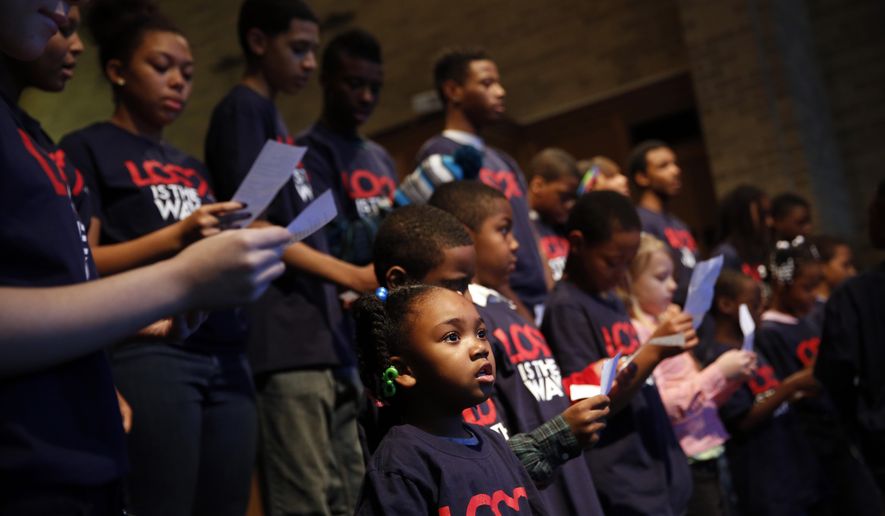OPINION:
On Sept. 17, The Heritage Foundation will host a special event on the state of the Black family 60 years after the issuance of the Moynihan Report on that very topic.
When former Sen. Daniel Patrick Moynihan issued his famous report, it was at the height of the Johnson administration’s rapid expansion of government entitlement programs, dubbed the “Great Society.”
Moynihan, a classic big-government liberal, was deeply concerned about Black households trapped in a seemingly endless generational cycle of poverty. He identified what he perceived to be the main contributing factor: family structure, or the lack thereof.
Despite his big-government leanings, Moynihan knew that more was needed than throwing money at the problem in hopes that it would go away. He realized government could not tuck a child into bed at night, be present at school events or offer loving discipline when needed. He was right.
Moynihan warned that money could not cure an open societal wound. In fact, the rapid infusion of federal cash made the problem worse as the inner cities he saw crumbling in 1965 have completely dissolved into chaos and despair over the past 60 years, with the problems spreading out to rural communities as well.
In fact, there is compelling evidence that the government programs implemented in the 1960s have torn gaping holes in our national fabric, particularly among Black families.
At the time the report was released, about a quarter of Black children were living in fatherless homes. Moynihan called it a crisis, and indeed it was. In 2023, the Census Bureau reported that 50% of Black children are raised in fatherless homes. Some 69.3% are born out of wedlock, according to the Centers for Disease Control and Prevention.
Why has this occurred? Because, as Manhattan Institute senior fellow Jason Riley points out, the Great Society penalized marriage and subsidized single parenting.
Mr. Riley observed that from 1890 to 1940, Black marriage rates in the United States were higher than those of White Americans. In addition, the poverty rate among Black Americans fell by 40% during the economic booms of the late 1940s and 1950s. From 1940 to 1970, the number of Black Americans in middle-class professions quadrupled, and the homicide rate for Black men fell by 18% in the 1940s and another 22% in the 1950s.
Everything was trending upward for Black Americans. Then the Great Society happened, turning the positive tide in the opposite direction. Instead of taking small measures to encourage the progress, the government decided to rush in and try to solve a crisis that was beginning to solve itself.
Thus, in nearly every area since 1965 — income, academic achievement and employment — Black families have either stagnated or gone backward despite the tens of trillions of dollars spent on Great Society programs.
As Mary Eberstadt, senior fellow at the Faith & Reason Institute writes, “It doesn’t take a Ph.D. to grasp that the fractured family is a major engine of the increased welfare state. Why? Because the state is the financial backer that makes single motherhood — and single fatherhood — possible.”
When Moynihan issued his report, he hoped it would begin a serious national conversation about the implications for Black families and society as a whole if the trend was not reversed. Unfortunately, instead of a conversation about the problem, we got dictates from Washington with precious little debate over the potential negative ramifications of its largesse on Black families.
That is why it is my hope that the upcoming event at The Heritage Foundation will help launch a new debate that seeks to empower Black families through policies that encourage, not discourage, intact families. All the money in the world cannot solve this problem; in fact, money enables it to continue virtually unabated.
We must go back and reread the Moynihan Report to restart our national conversation, free of partisanship and grandstanding, to bring hope and healing to Black families, our inner cities and our society.
The Moynihan Report may have been prophetic, but we can start addressing the late senator’s concerns today and turn his prophecy away from the harsh reality we are facing.
• Timothy Goeglein was a special assistant to President George W. Bush and deputy director of the White House Office of Public Liaison from 2001 to 2008. In January 2009, Mr. Goeglein became the vice president of external and government relations for the Christian organization Focus on the Family.




Please read our comment policy before commenting.